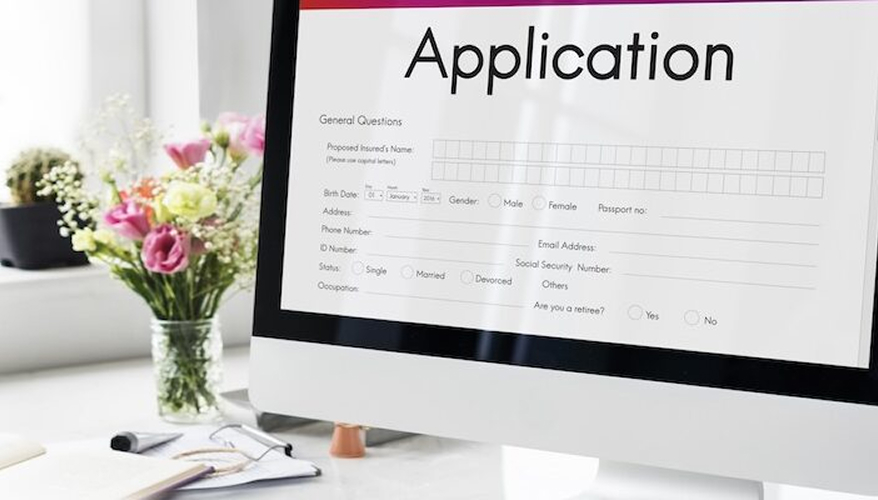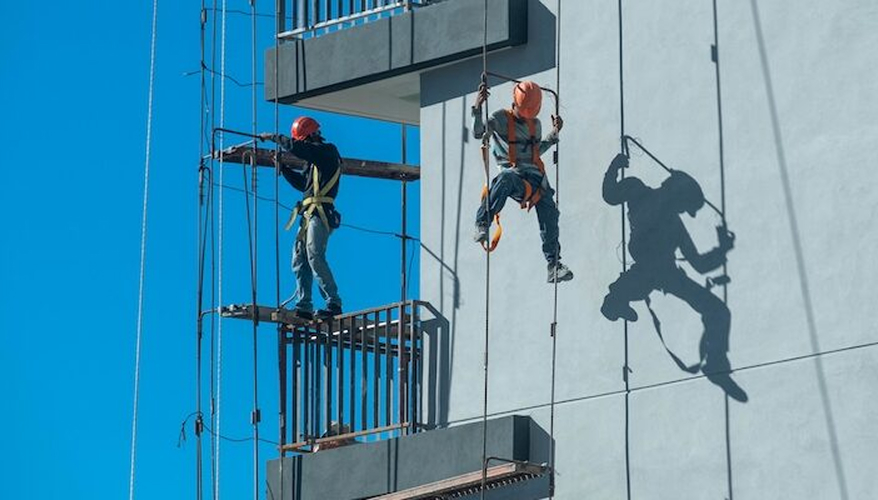Are you a Singapore citizen or a Singapore permanent resident (PR) who wants to marry a non-Singaporean?
Or maybe you are a foreign professional who has been living and working in Singapore for a while and want to continue doing so as a comprehensive Singaporean alongside your spouse? If that is the case, what better way to make your dream a reality than becoming a PR?
Are you curious as to why this is the best solution for you and your partner? After all, EP holders can apply for a Dependant’s Pass or a Long Term Visit Pass (LTVP) for their partners, whilst Singapore citizens and PRs can request for an LTVP or LTVP+.
However, as convenient as it may be to stay in Singapore while using these permits, the problem is that they are not permanent. Furthermore, there is no certainty that one can successfully renew them when they are due to expire.
Meanwhile, obtaining PR status would also provide your spouse with a wide variety of perks comparable to those enjoyed by Singapore citizens. Even better, the PR status can pave the road for citizenship, turning your spouse into a real Singaporean.
As a result, a permanent residency for your prospective or present spouse should be a given. But, exactly, what is it that one must know about this? Continue reading to discover the facts.
Which PR Program Does Your Spouse Qualify For?
There is no doubt that getting a Singapore PR is your best option if you want to make it yours forever home. So, whenever it involves seeking PR status in Singapore, it’s a good idea to start by knowing more about the country’s qualifying standards. From around 2019, there are five different schemes under which your partner may qualify to become a PR.
Although your partner may fulfil the eligibility criteria for more than one of these programs, they must choose just one of the below to apply for PR:
The Family Scheme
The Family Scheme allows spouses of Singapore Citizens and PRs to apply for Singapore PR status. Once the law recognises your marriage, your partner can become a PR if you are either a Singapore Citizen or a PR.
To apply, you must use your SingPass account to connect to the Immigration & Checkpoints Authority’s (ICA) online PR application portal.
Throughout the application process, you must present documentation for verification reasons, including an authentic marriage certificate. Unfortunately, this scheme does not include common-law couples.
The Professionals, Technical Personnel, and Skilled Workers Scheme (Dependant)
Your spouse may be able to qualify for PR status as a dependant if you yourself apply for PR under the Professionals, Technical Personnel, and Skilled Workers Scheme.
You will need to use your Singpass account to log into the web PR application system, just like you did for the Family Scheme. However, remember that your marriage must be legally recognised and not just a common-law union to qualify.
If you fulfil these conditions, you must provide an authentic marriage certificate to confirm the validity of this application.
The Professionals, Technical Personnel, and Skilled Workers Scheme (Main Applicant)
If your spouse holds one of these passes: EP, Personalised EP, EntrePass, or S Pass, they can apply for PR on their own merit within the PTS Scheme.
Because you will not play a significant part in the application, your spouse will need to apply for a PR using their own Singpass account.
As a result, the online registration system would be able to create an actual list of necessary supporting papers which he or she will need to provide.
The Global Investors Program
The Global Investor Programme (GIP), which gives the PR status to non-Singaporean investors, is another scheme through which your partner can apply for PR on their own merits.
To be eligible, applicants must invest at least S$2.5 million into the local economy through one of the Economic Development Board (EDB) ‘s approved methods.
If your spouse wishes to apply for PR under this system, they must do so through Contact Singapore, an EDB division, rather than through ICA. After you submit your application, ICA should call you for an appointment within 2 to 4 weeks.
The Foreign Artistic Talents Scheme
Lastly, if your spouse is an art expert who has made substantial contributions to the local arts and culture scene, they may be qualified for PR status through the Foreign Artistic Talent initiative.
The National Arts Council (NAC), as well as the ICA, are in charge of this program, with the latter empowered to make the final decision regarding approval. It should be noted that conditions to apply for PR under this ForArts scheme are relatively stringent.
To be considered, your spouse must have a strong portfolio in at least any of the following areas: Visual Arts, Performing Arts, Design, Literary Arts, and Media.
Furthermore, this portfolio must feature significant contributions to the arts and cultural scene, with the candidate spearheading some or all of them.
Most essentially, each applicant must promote himself as a role model by consistently demonstrating that he is a person of good character.
Paperwork Required for Application for Your Spouse’s PR
The documents that are required to be submitted during PR application for or by a spouse include;
From the Applicant (Foreign Partner)
- A page containing the passport bio-data.
- D/E (Disembarkation/Embarkation) number (if applicable).
- A current passport-sized, digital, colour image of the applicant taken within the past three months. All specifications should be followed accordingly.
- Letter of employment detailing the start date, title, and monthly pay (if applicable).
- A valid registration certificate from the Accounting and Corporate Regulatory Authority (ACRA) as well as the company’s Profit and Loss Statement for the previous 12 months are required for self-employed individuals (if applicable).
- Pay slips from the previous six months (if applicable).
From the Sponsor (Singaporean PR)
- Card of Identification (ID).
- Notices of Assessment for the last three years, as well as a Central Provident Fund (CPF) Statement detailing monthly CPF contributions for the previous year.
- Letter of employment indicating the start date, title, and monthly compensation.
- A valid registration certificate from the Accounting and Corporate Regulatory Authority (ACRA) and the company’s Profit and Loss Statement for the previous 12 months are required for self-employed individuals.
- Pay slips from the previous six months.
From the Sponsor and the Applicant (Both Partners)
- Certificate(s) showing the highest degree of academic achievement.
- Certificate of Marriage.
- Divorce certificate if you were previously married.
The Application Process
Your application has to be completed entirely online at the ICA website and must include your application form as well as all necessary documents.
1st Step: Fill Out The Application Form Completely (Form 4SC)
Before submitting your information online, fill out your application form offline.
2nd Step: Organise Your Paperwork
Both the sponsor and the applicant must provide a list of papers with their application (s). These papers are either indicated at the start of the form or can be found in the explanatory notes.
If your original documents are not in English, you should get them translated.
The following translations are accepted by ICA:
- Those prepared by the embassy of the nation that issued the document.
- Those prepared by a notary public in Singapore or the nation that issued the document.
- Privately prepared translations confirmed by the embassy of the issuing nation or notarised by a notary public in Singapore or the issuing country.
3rd Step: Fill Out An Online Application
Once you have completed your form and documentation, you’re ready to go. It’s time to submit your application.
You can use the sponsor’s Singpass credentials to log in.
Once you have done so, follow the steps to submit your application form, examine the information on your form, attach your documents, and pay the $100 application cost.
Once you have finished your application, save a copy of your ICA acknowledgement, the final copy of your application form, and your payment receipt.
4th Step: Keep An Eye Out For Your Outcome
PR applications are processed by ICA within an average of 4-6 months. They might take much longer or significantly shorter at times.
The findings will be delivered to the address you provide on the application form. So, if you have relocated, be sure to update your address with ICA as soon as possible.
You may also check the progress of your application. Your application’s status will be shown as “Pending,” “Approved,” or “Rejected.”
5th Step: What Should You Do With Your Approval Or Rejection Results?
If Your Application Is Accepted
The ICA will provide you with a letter of approval in principle. You will also get information on how to complete the necessary paperwork to get your blue NRIC (identity card) and Re-Entry Permit (REP).
If Your Application Is Turned Down
You can submit a fresh application after six months. You can also file an appeal against the PR rejected application within this period of time.
Conclusion
The road to gaining a PR designation is not limited by the criteria publicly set out by the ICA, EDB, or NAC.
Unfortunately, authorities would not mind rejecting applicants that will not be of benefit to the nation, and they may even repatriate spouses who do not qualify for any other available passes. As a result, it pays to make sure you are familiar with the numerous alternatives available for securing permanent residence in Singapore in order to safeguard yourself and your family.
If you want to increase your chances of getting a Singapore PR on the first go, it’s recommended to engage a reliable immigration consultant to help you with the application process. As they know the industry and the process inside out, they will be able to guide you through the process and ensure everything is on track.






